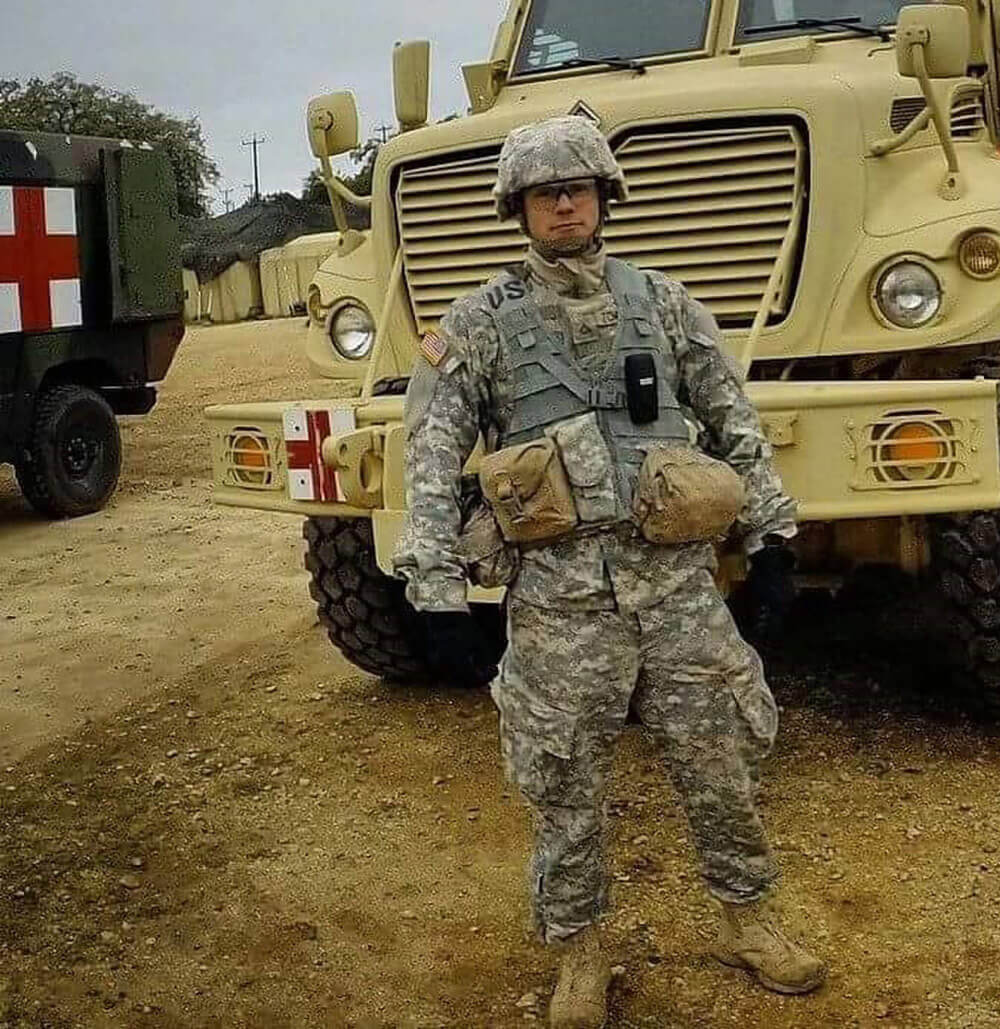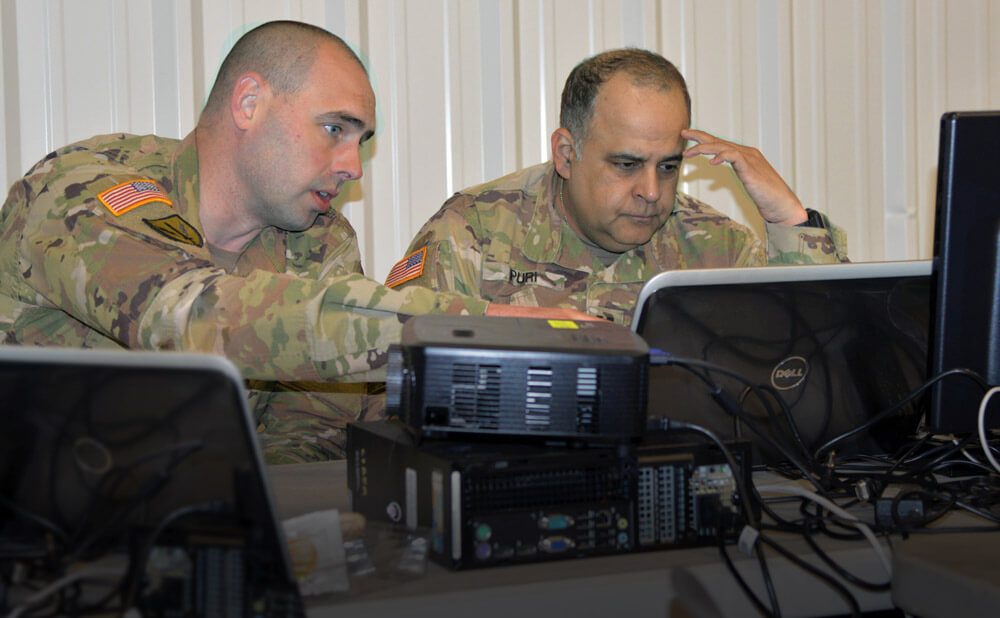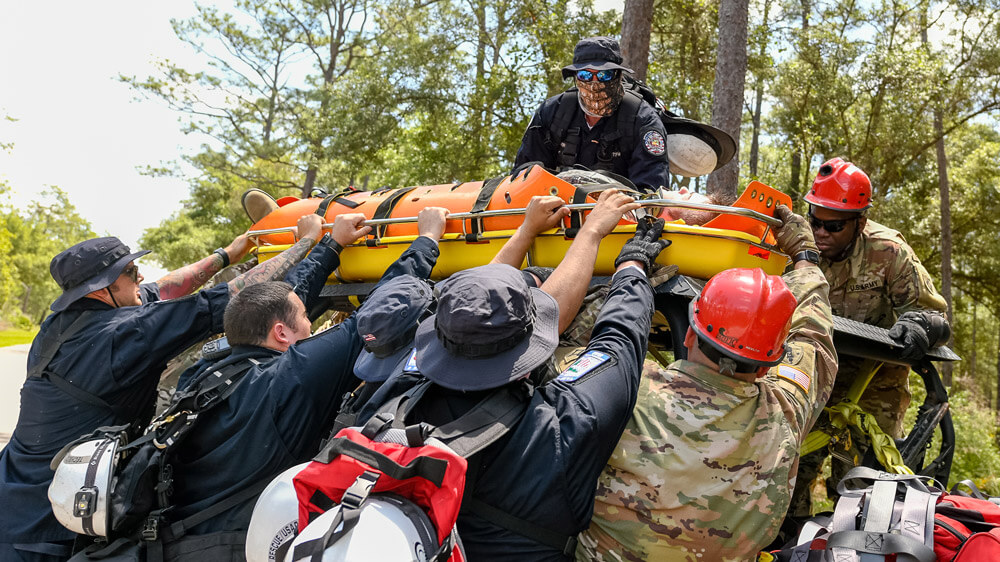On March 15, SPC Trevor Tompkins arrived at Philadelphia International Airport to pick up his mother. She was flying in to be with her father, who had suffered a major heart attack the day before.
SPC Tompkins was waiting for the plane to land when he noticed an airport employee trying to rouse an elderly man in the terminal.
SPC Tompkins, a combat medic with Headquarters Company, 2nd Battalion, 112th Infantry Regiment, 56th Stryker Brigade Combat Team, 28th Infantry Division, Pennsylvania Army National Guard, ran over and helped lower the man safely to the ground while announcing that he was a trained medic.
“My first thought was, ‘Oh no, this guy is having a heart attack,’” said SPC Tompkins, of Penns Creek, Pennsylvania.
He shouted for someone to call 911 and asked for an automated external defibrillator (AED). Tompkins instantly began performing CPR.
James Lutey, a customs and border protection officer with Homeland Security, arrived shortly after Tompkins started chest compressions and rescue breathing.
“When I got on scene, he was getting out the AED and hooking it up,” Lutey said. “I assisted, but he directed everything. It was clear he was experienced.”
For 15 minutes, SPC Tompkins alternated between AED applications and CPR to resuscitate the man.
“I put my heart into this; my biggest fear was losing him,” SPC Tompkins said. “Of course, there was anxiety; I did not want to lose this guy. When I was treating him, it hit close to home, because my grandfather just suffered a major heart attack the day before.”
“It was muscle memory; it worked like clockwork,” he added. “Last month, we did CPR retraining to stay current. Being a medic is a perishable skill. We all have civilian jobs – I am a sales [representative] for a home building company; I have no medical practice outside of the Army. When we have drill, we train hard.”
After a few minutes, SPC Tompkins found a pulse and the man began breathing on his own. Tompkins rolled him over onto his side and put him in the recovery position so that he could maintain a clear airway.
“I was elated that I had restored his pulse, but I monitored him every 15 seconds,” SPC Tompkins said. “I knew I may have to start CPR again.”
As they waited for emergency medical services to arrive, Lutey said SPC Tompkins was in firm control of the situation. “It is clear that he is well trained and is able to perform admirably in uniform and outside of his military duties,” Lutey said.
“At the end of the day, I was just doing my job,” SPC Tompkins said. “When you see someone go down, it is just second nature. As a medic, you are the deciding factor whether or not they get to go home. I wanted to make sure this guy went home.”
BY MAJ Gregory McElwain, Pennsylvania NATIONAL GUARD



